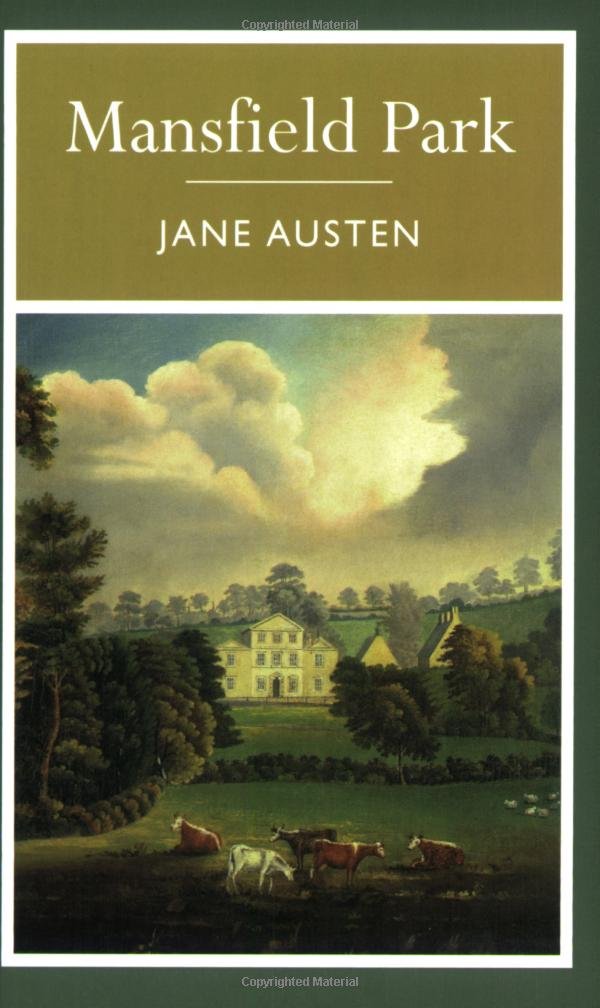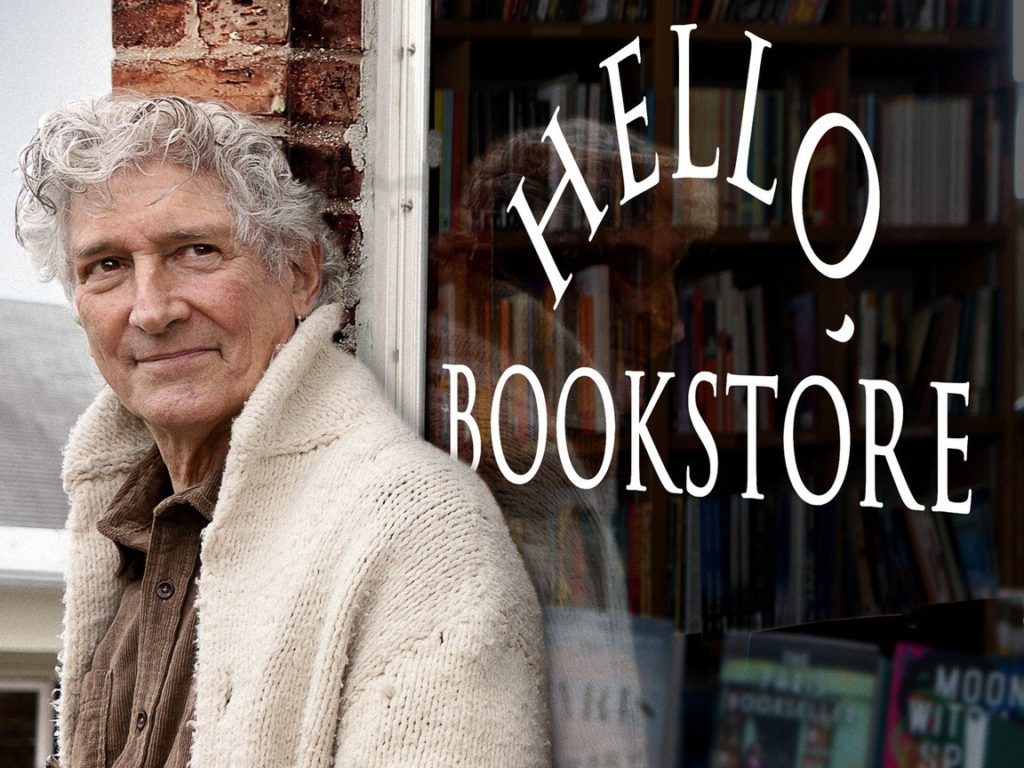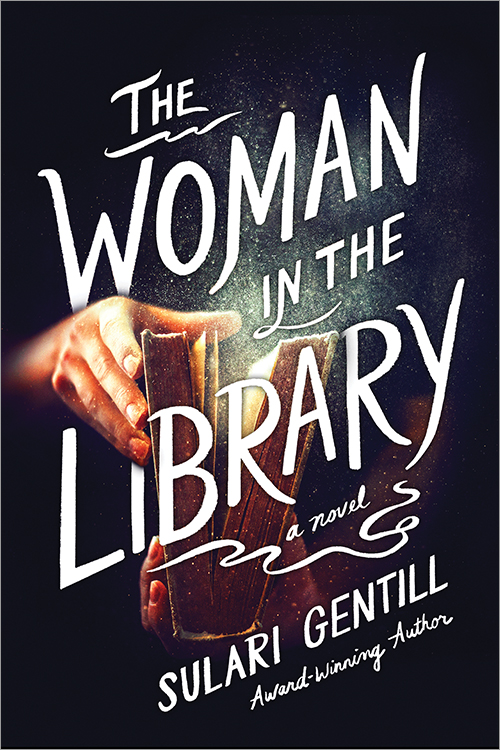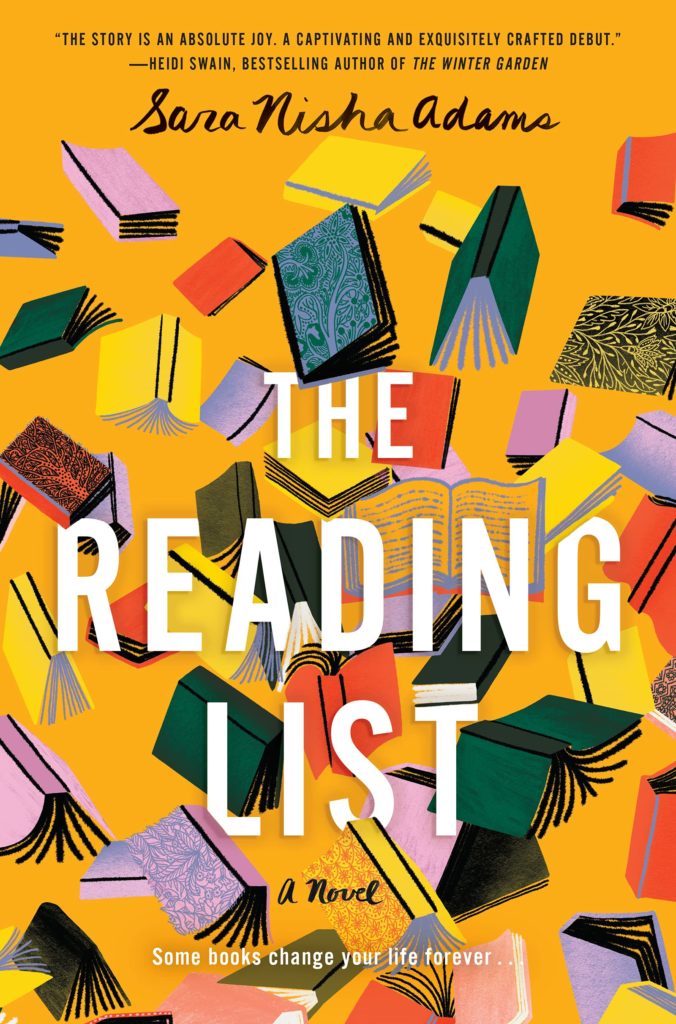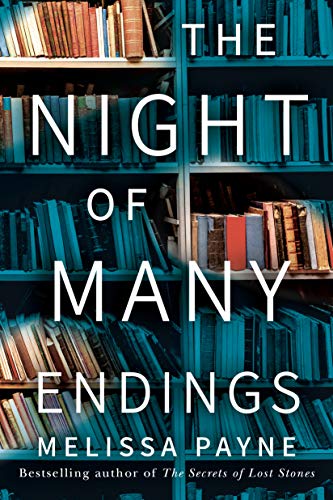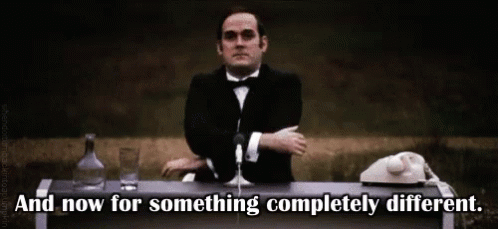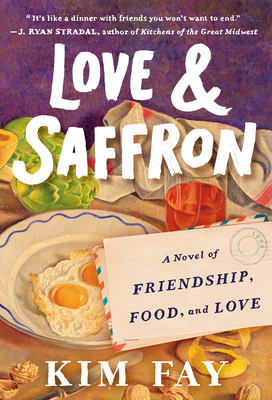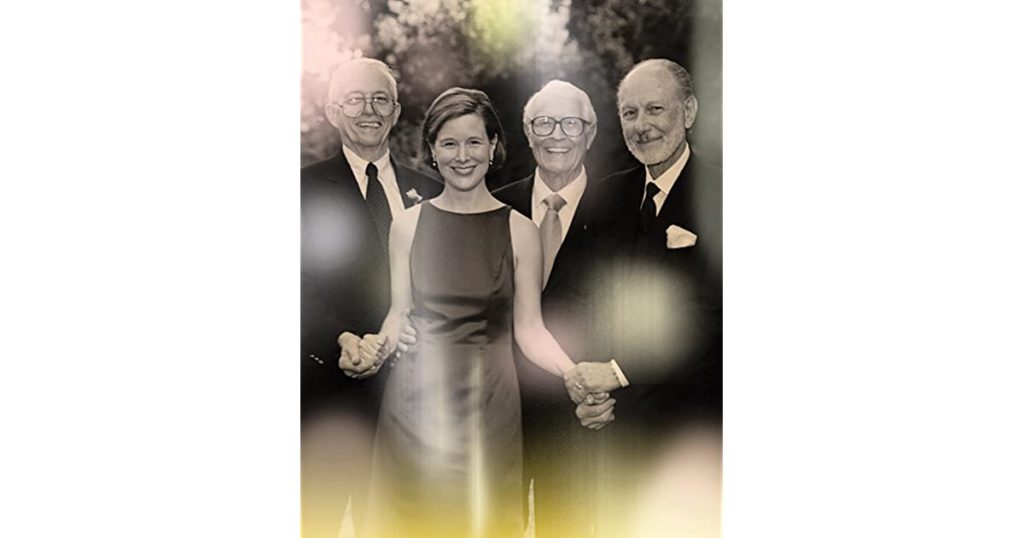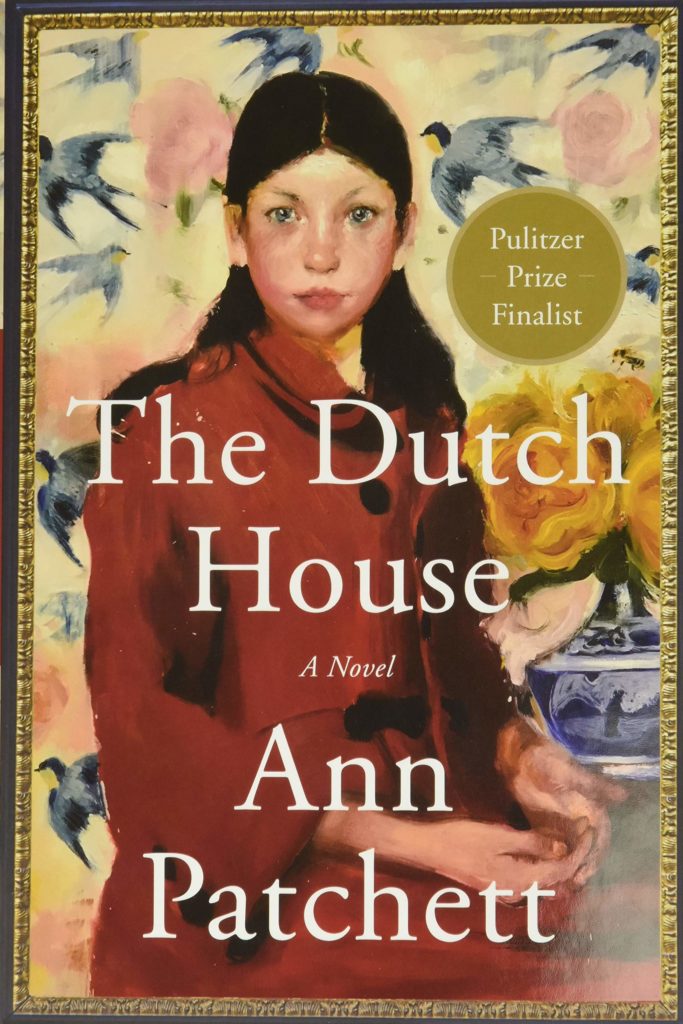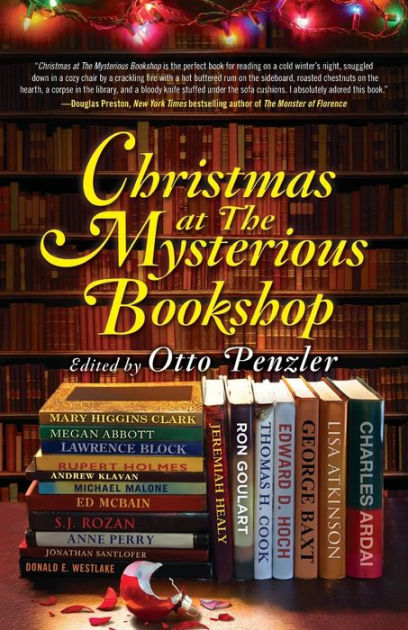Miss Austen by Gill Hornby
After my last few books, I promised myself I’d read something totally different, and I certainly accomplished that goal with Miss Austen.
This novel imagines the life of Jane Austen’s sister Cassandra – both from the time they were girls up until her old age. The story begins in 1840, and sixty-seven year old Cassandra Austen travels to Kintbury, the family home of her deceased fiancé, Tom Fowle.
Ostensibly visiting to assist in packing up household in preparation to move after the death of her brother-in-law, Cassandra is actually there to search for and destroy any of Jane’s letters which may damage her legacy and image. These letters cover key relationships and events between the Austen, Fowle, and Lloyd families between 1795 and 1817. While finding and obtaining these letters, Cassandra Austen revisits the past, and the details of her life and her sister’s life are tantalizingly revealed
It is a truth universally acknowledged (get it? a little Jane Austen humor there) that Cassandra burned hundreds of letters to and from Jane before her own death in 1845. Ms. Hornby re imagines these letters, and others, throughout this novel. Even though the letters aren’t real, it was an wonderful way to inhabit the lives of Cassandra, Jane, the Austen family, and their relations.
As she discovers and reads the letters at Kintbury, both Cassandra and the reader are transported back to the early 1800’s to a story that could have been one of Jane’s own works. Cassandra falls deeply in love, is betrothed and then bereaved. Unable to reconcile the memory of her one great love, Cassandra vows to remain single and devote herself to her family and good works.
Jane Austen also remained unmarried and their devoted sibling relationship is portrayed with Jane’s letters to Cassandra and the reader is brought into their closeness.
I have lost a treasure, such a sister, such a friend as never can have been surpassed. She was the sun of my life, the gilder of every pleasure, the soother of every sorrow, I had not a thought concealed from her, and it is as if I had lost a part of myself. – Cassandra Austen upon Jane’s death
Interwoven with Cassandra’s history is the ‘present-day’ (1840) story of her dead finance’s family and the author explores the fate of unmarried women and the real need for them to marry and marry well. A glimpse into the plight of unmarried women during this time, and their efforts to find happiness in a world in which they were considered worthless except as caretakers for those more fortunate.
Whoever looked at an elderly lady and saw the young heroine she once was?
I especially enjoyed Ms. Hornby’s depiction of the Austen family and the love they felt for each other.
She [Cassandra] and her siblings were, to one another, a source of constant love and cheerful support. It was such a sadness to find other families so differently arranged.
Now, readers I totally enjoyed this novel. I found the writing exquisite and a wonderful insight into the Austen family story, however, here at Book Barmy we try to give fair warning about books that may not suit everyone.
So here we go…
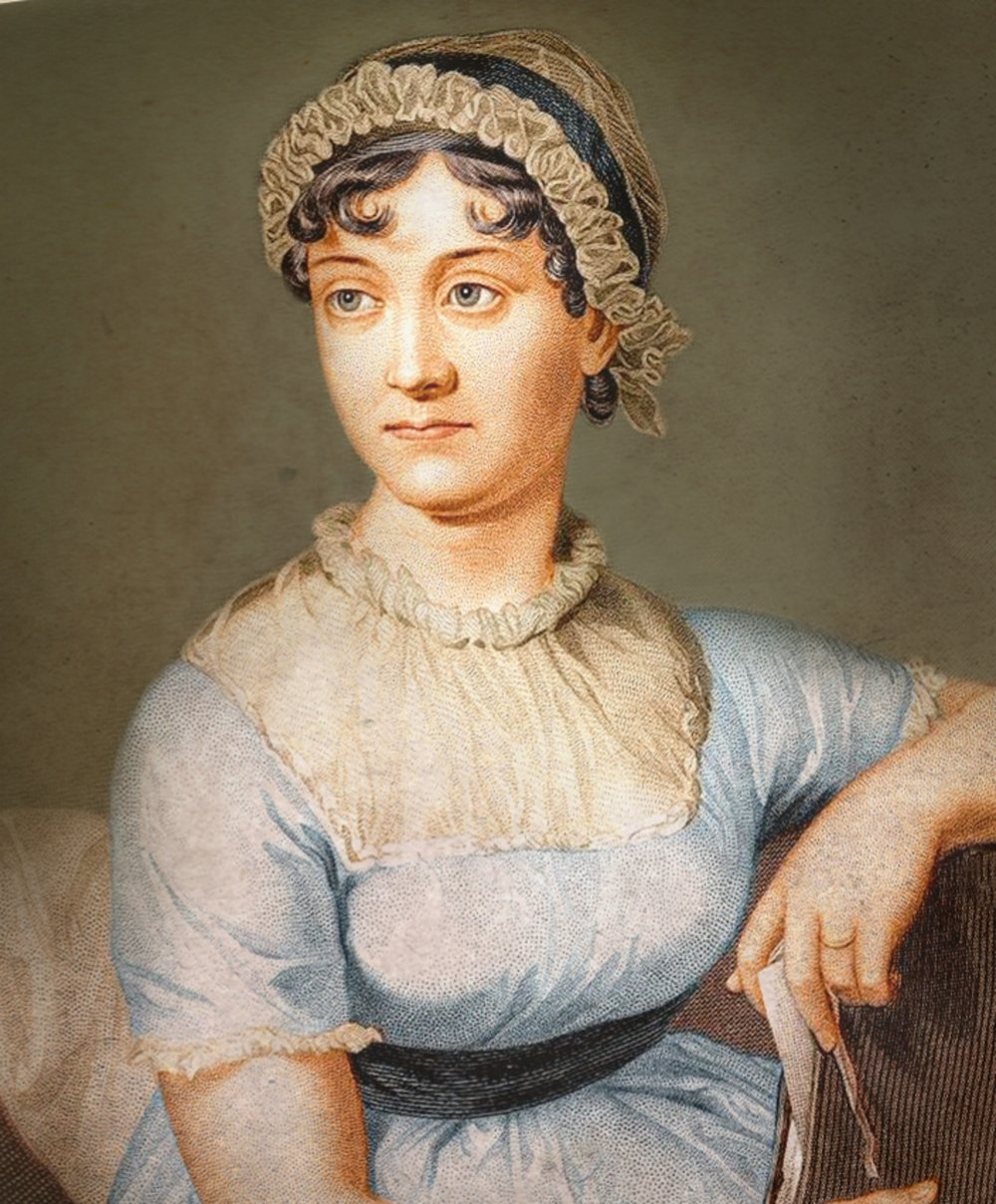
Miss Austen is a slow read and it isn’t very plot focused — it’s the characters that shine through — even Mary Austen, who was just insufferable. And like Jane Austen’s own works, the novel has many characters to keep straight, but rest assured, there’s a list of characters to help you. And one more disclaimer, I believe one should be a Jane Austen fan to fully enjoy this novel.
This wonderful imagining had me headed to my shelves to maybe re-read one or two in my Jane Austen collection. But then — what’s this, say what? I realized I have never read Mansfield Park.

Shamefaced, I have added it to the rest-of-my-summer reading pile list.
Hello, Bookstore
Hello Bookstore is a documentary that won’t appeal to everyone – only if ~~ (check all that apply):
___ You are barmy about books.
___ You like bookish people
___ You cherish quirky, independent bookstores
___ You adore people who talk about books
___ You admire booksellers who know & love their books
___ You want to follow a bookstore through good & bad times.
I rented this wonderful film after my sister sent me a review from the Boston Globe, and then upon reading this review in the The New York Times:
Matthew Tannenbaum’s reading voice beckons. Which may be a funny thing to remark upon given that we see his face nearly nonstop in “Hello, Bookstore.” Then again, the documentary about this bookstore owner, directed by A.B. Zax, is a tribute to the love of reading and the pleasures of a smartly stocked bookstore. Tannenbaum’s fondness for his store and its wares is a beautiful thing to behold, even at its most vulnerable.
The film is dedicated to a bookshop simply called ‘The Bookstore’ in Lenox, Massachusetts and its owner, Matthew Tannenbaum. The viewer is a fly on the shelf (as the NY Times called it) inside the bookstore and shadowing Mr. Tannenbaum before, during, and after, the pandemic.
We watch as Tannenbaum conducts curbside business through his closed glass door, loudly asking; “What are you looking for?”, and fulfilling orders by having customers read him their credit card numbers, but also conducting his business as usual — telling a customer; “oh I have just the one [book] for you.” Then turns to the camera; “That’s so much fun.”
The director started this project in 2019 before before the pandemic, so the documentary is interspersed with normal bookstore activity before and after the closure. We see regular customers who come to shop for books and sit at the in-store wine bar, delightfully named Get Lit.
Mr. Tannenbaum tells of his first job at the Gotham Book Mart and how he wanted to work there as soon as he smelled the books and heard the timeworn wooden floors creak (a comrade! I said to the TV screen..).
He interrupts the interview to nod towards a customer; “Look at that smile, he’s found a book.”
In another scene, Mr. Tannenbaum recommends a book to a customer, saying; “My bookmark never had a chance.” Then when (again through the closed front door) a customer can’t remember which book it was she wanted from the current NY Times best-seller list, he goes and gets his copy of the paper and passes it out to her.
An older gentleman customer comes in after the pandemic seeking the books he ordered six months prior and after Mr. Tannenbaum conducts a long search behind the counter, the customer realizes he had already brought them home and leaves….”successful transaction!”, says our bookseller.
There is a short segment on the Bookstore’s struggles during the pandemic and a successful GoFundMe campaign, but the focus of the film is the books, customers, and Mr. Tannenbaum himself.
The camera also catches Mr. Tannenbaum sitting down to read to us from his favorite books or poetry during which he does with great joy. And he ends one session choking up and saying; “Fiction is how I see the world — I don’t run away from the world.”.
This is a bibliophile’s cult film and, as I said, not for everyone. See questions above. As you can tell, I truly enjoyed it. Perfect viewing for hot sleepy night in front of the air conditioner (or a cool, foggy one out HERE) It will cost you $5.99 to stream it on Amazon Prime and/or YouTube (I will gladly send the funds to anyone who can’t afford that.)
I laughed out loud at the closing scene ~~ a customer says to Mr. Tannenbaum;
“I see what you do. You are surrounded by all the things you love in the world and the only thing that interrupts you is people trying to give you money”.
If you follow us here at Book Barmy ~~ I ask, how can you resist?
Library Books
You may remember that I have quite an impressive collection of unread books based in libraries and bookstores. I have just read three in a row – all based in libraries. This may have been a mistake to read them so close together — as one was great, but the other two – well not so much. I’ll start with the best.
The Woman in the Library by Sulari Gentill
This was a really fun read. Although the title is somewhat of a misnomer, as only the first scene takes place in a library, namely, the beautiful Boston Public Library.
Four strangers are sitting at the same table in the library’s reading room when a scream is heard and later a body of a woman is found murdered in the library. These four table mates — Cain, a novelist, Freddie (Winifred), an Australian writer visiting on a writing grant, Marigold, a grad student in psychology, and Whit, a reluctant Harvard Law student unite over the unsolved murder.
But wait, The Woman in the Library is a story within a story, as the book opens with an email from Leo Johnson, an early reader for Australian author, Hannah Tigone, a mystery writer, who because of Covid is relying on Leo to help with Americanisms and local Boston authenticity. These emails from Leo are interspersed throughout the novel. At first Leo simply provides some writing suggestions and corrects her language (as in: ‘a car boot is called a trunk here’). As the novel progresses, Leo starts providing social commentary on current events, and trespasses into creepy stalker territory.
Meanwhile back in Boston, our library patrons are trying to solve the screaming woman’s murder mostly for selfish reasons. Cain and Freddie want to use the story in their writing, and Marigold is just there out of curiosity, and perhaps a crush. Whit is in it for the fun. But as they dig deeper they begin to discover connections some of them may have had with the deceased. They start to question why they were all sitting together at the opportune time of the scream. I was captivated by this engaging group as they observe, react to and investigate the murders that follow.
It was refreshing to have the author as a main character and a novel with an author writing about another author was just fun. I enjoyed Ms. Gentill’s (Freddie’s) narration and description of the writing process, likening it to laying bricks without a plan, and allowing the walls to twist and turn on a whim. Or like riding a bus where people get on and off and there’s always the possibility of the route being changed at the last minute because of weather, an accident, parade or marathon.
And this quote while of staring at the ceiling in the Boston public library reading room:
These [ceilings] have gazed down on writers before. Do they see one now? Or just a woman in the library with a blank page before her? Maybe I should just stop looking at the ceiling and write something.’
I don’t want to give away any more about this many-layered mystery. When it came to the actual whodunit, I changed my mind many times. As a reader you have to figure out not only the criminal, but the crime as well – while at the same time you’re following the complex writing process of the actual writer Hannah and her creepy correspondent, Leo. The concept may seen confusing as I muck up this review, but trust me it’s not confusing – it’s compelling.
Even though you think you know where this story might end up, Ms. Gentill manages to surprise you. The Woman in the Library is an accomplished page turner of a mystery. And if you’re someone who enjoys a good mystery that will challenge you and keep you on edge of your seat – you will certainly want to seek this one out.
Many thanks to Poisoned Pen Press and NetGalley for the digital advanced readers copy.
~~~~~~~~~~~~~~~~~~~~~~~~
Full disclosure I did not finish the following two books, so these reviews are not based on a full reading of either.
The Reading List by Sara Nisha Adams
A review of The Reading List purported that it was about people finding community in a library, connecting in unexpected ways, all surrounded by the love of reading. And the starting point held great promise — a list of books is found within the pages of a recently returned library book and two characters – a young librarian who is trying to find her way in life and an elderly man and recent widower connect in the library. They read through the list together and together they discover the joys of reading and through books they develop a deep friendship.
Doesn’t The Reading List sound like something right up my alley? I’m someone who loves to read, relishes libraries, and I do appreciate a good reading list.
But nooo, I found it had a lackluster plot and much pointless rambling. The writing drags and drags to the point that I returned it to the library after only six chapters.
To me it suffered from a strange combination of being trite, while at the same time, just very sad.
But don’t trust me, many have loved it – it has great reviews so perhaps it might work for you.
(Warning this book contains story lines about suicide.)
Just in case you’re wondering here’s the reading list:
To Kill a Mockingbird
Rebecca
The Kite Runner
Life of Pi
Pride and Prejudice
Little Women
Beloved
A Suitable Boy
The Night of Many Endings by Melissa Payne
This book was on my library wish list, so I ordered it and checked it out of my local branch. Reading it after The Reading List (above) was my big mistake. The Night of Many Endings is about a librarian who has dedicated her life to trying to save her brother, Mario. But no matter what she does, including putting her own life on hold, Mario can’t beat his drug addiction for long. In the hopes that her own good deeds will pay it forward, Nora spends her free time helping the homeless in her town of Silver Ridge, Colorado.
On the day the novel opens, Nora chases another lead that Mario may be back in town. When her search proves fruitless, she goes to her job as the town librarian, already planning what she can do the following day to find her brother. However, that night a massive snow storm hits the town, trapping her in the library with Marlene, a crotchety senior citizen, Vlado, the library’s security guard, Lewis, a homeless man who nearly overdosed outside the library, and Jasmine, a local teenager.
As the storm progresses they start to open up to each other…and then
zzzzzzzzzzzzzz
oh, sorry there, I almost fell asleep even trying to write about this very slow, sad, and boring read.
I shut the book there and this one, too got returned it to the library.
Again, I blame myself for trying to read such similar books back to back.
I’m off to find something completely different to get me out of this slump.
Love and Saffron by Kim Fay
I am a frequent visitor to my branch library only a few blocks away.
Why you may ask? Don’t you have a houseful of books waiting to be read? Yes, and your point would be?
So as I was saying, I stopped by the library on Friday — (I was feeling down, but we won’t discuss that here). A visit to the library always cheers me up, and I was looking for an escapist read, something light and easy.
Love and Saffron seemed like the perfect cure. Especially after I read these:
In the vein of the classic 84, Charing Cross Road, this witty and tender novel follows two women in 1960s America as they discover that food really does connect us all, and that friendship and laughter are the best medicine.
And this: “In an age when we’re barraged with Twitter blow-ups, pandemic deaths, and political discourse of the most uncivil kind, Love & Saffron is as refreshing as watching the sunset over the Pacific Ocean, with a glass of Sauvignon Blanc and a bowl of garlicky clams at your elbow. Kim Fay convincingly recreates a charming and civil world, and a touching friendship, in a period piece that will restore you to your kinder, gentler self.” —Richard C. Morais, author of The Hundred Foot Journey
So, of course Love and Saffron came home with me — and I gobbled it up this weekend (pun intended).
In the early 1960’s, Imogen Fortier writes a monthly column called “Letter from the Island” for Northwest Home & Life Magazine. She writes about summers spent in her family’s cabin on Camano Island in Puget Sound, Washington. Meanwhile in Los Angeles, Joan Bergstrom, a budding food columnist, is a fan of Imogen’s column and writes her a fan letter, explaining how much she admires her column and noting that Imogen had mentioned mussels as a nuisance. Joan suggests that Imogen collect some, suggesting a French recipe and even sending a packet of saffron to use in the recipe. Saffron was not easy to come by in 1963 and Imogen, who can dig clams or hunt an elk, has never even tasted fresh garlic — so she was greatly impressed by the gift of such a rare spice.
Thus begins a beautiful friendship told through their letters in the early 1960s.
These letters bring to life the issues of the time period — anxiety over the Cuban missile crisis, grief at President John Kennedy’s assignation, their mutual dislike of Helen Gurley Brown’s ‘Sex and the Single Girl’, despite which they share their hopes for what the future holds for women (!)
(biting my tongue here – I won’t write about women’s futures in 2022 – you don’t want me to get started)…
Imogene or “Immy” encourages Joan in her career path, and their letters discuss pop culture, the Beatles appearance on Ed Sullivan, John Updike’s novels, the racial climate in Los Angeles, and of course, the food culture in both the Pacific Northwest and Los Angeles — especially the ingredients unique to their areas.
There are serious subjects as well, a bi-racial relationship, Immy’s husband’s PTSD, and an unplanned pregnancy. But wait there’s more — there are recipes throughout, told within the letters and described in prose. How to make perfect scrambled eggs (Julia Child does the same) and mouth-watering instructions for Carne Asada*.
Immy and Joan’s personalities are wonderfully developed and their daily lives so full of beauty and detail, that I felt fully immersed in their stories. We have lost the art of letter writing (among many other things this weekend — okay I’ll stop now) and this quote made me sigh in remembrance of long-lost pen pals and romantic missives to (and from) boyfriends.
There is unequaled satisfaction in composing words on a blank page, sealing them in an envelope, writing an address in my own messy hand, adding a stamp, walking it to the mailbox, and raising the flag. It’s like preparing a gift, and I feel like I receive one when a letter arrives…
It’s always appealing to immerse myself in an epistolary novel (written primarily in letters and one of my favorite genres). Ms. Fay gave me a wonderfully delicious way to escape this weekend – which indeed was my plan.
Love & Saffron is a lovely, quiet novel that has much to say below the surface, but the friendship between two women was the main appeal. This book is short, the letters only span the years 1962-1966, but much richness and life is contained in those four years.
What started out as a simple letter about adding saffron to muscles, turns into a lifetime of friendship, love, and companionship. For me, Love & Saffron made me stop to think about my true friendships and how much I cherish them.
*NB: I found this very similar recipe on the internet
I forgot to copy out this recipe from the library book before I returned it this morning.
Carne Asada
- 3 lb. Steak (skirt, flank or beef flap)
Marinade Mixture
- 2 Oranges juiced
- 4 Limes juiced
- ⅓ cup Olive Oil
- ¼ cup Soy Sauce
- 4 cloves Garlic minced
- 1 bunch fresh Cilantro leaves chopped, stems discarded
- 3 Jalapenos (optional) minced
- 2 tbsp. Brown Sugar
- 2 tsp. Ground Cumin
- 1 tsp. Dried Oregano
- Salt & Pepper to taste
Instructions
Combine the marinade ingredients in large mixing bowl.
Whisk until well combined.
Put the steak in a gallon-sized zip lock bag. Pour the marinade over the steak. Close the bag letting out as much air as possible. Let refrigerate for at least 6 hours and up to 24 hours.
Grill the steak to your liking.
Two Books by Ann Patchett
As you know, Ann Patchett is one of my favorite authors, as evidenced HERE and HERE. So of course, I read her most recent essay collection, These Precious Days. I’ve grown to enjoy reading essays, especially when written by an author I admire.

From the very first essay, I was highlighting passages — how Ann feels most vulnerable when carrying her fictional characters around in her head as she is writing her novels.
And, her essays written during the pandemic had me nodding in agreement.
Most of the writers and artists I know were made for sheltering in place. The world asks us to engage, and for the most part we can, but given the choice, we’d rather stay home.
Another essay that will stay with me for a long time was written about her three fathers — her biological father and her two stepfathers. She expounds on their three very different personalities and relationships with her. The way she describes the group photo she orchestrated with the three of them made me smile, and her antidotes about each of them left me sad, but nonetheless, feeling good.
Ms. Patchett writes about writing, her books, and how she’s obsessed with making sure her book covers are exactly the way she envisions them. (More on that in the review below.)
But most poignantly, she writes about two important friendships — with lifelong friend Talia, and her new friend Sooki. Her friendship with Sooki — the topic of the title essay — was especially moving. Ms. Patchett tells of reading an advance copy of Tom Hanks’ book Uncommon Type, and how she loved it and wrote a review for the publication. Then she was invited to interview Tom Hanks, himself. That’s where she met Sooki Tom’s assistant— and the two became close email friends. And then, Sooki was diagnosed with pancreatic cancer.
Ann sprung into action because she could. Her husband, Karl, a doctor, connected Sooki with a clinical trial, and she moved in with Ann and Karl during her treatments. Near strangers, but not strangers at all. It’s always remarkable to me how two souls find one another and connect.
For as many times as the horrible thing happens, a thousand times in every day the horrible thing passes us by.
And then this quote I read and re-read shaking my head at Ms. Patchett’s insight…
The trouble with good fortune is that we tend to equate it with personal goodness, so that if things are going well for us and less well for others, it’s assumed they must have done something to have brought that misfortune on themselves while we must have worked harder to avoid it. We speak of ourselves as being blessed, but what can that mean except that others are not blessed […] It is our responsibility to care for one another, to create fairness in the face of unfairness and find equality where none may have existed in the past.
If there is a theme to These Precious Days — it’s all about hope and finding a way through the darkest times — and doing so with ferocity, understanding, openness, and love.
Reading this book made me feel like the world is not actually such a horrible place, because there are dear friends and good people everywhere – they just don’t make the headlines.
The next Ann Patchett I read was The Dutch House. The very kind publishers sent me a digital advance readers copy several months (whoops) several years ago, but I had forgotten about this book. That is, until I read about the author’s long journey to find and eventually create this cover art (in one of her essays reviewed above).
But first I’ll tell you about the plot.
The Dutch House is located just outside of Pennsylvania and is a grand home with lovely large windows, a stately facade, and, beautiful interiors. Maeve and Danny Conroy live there with their father. We learn that the father very much wanted this house and quickly purchased it when the previous (Dutch) owners died. Their mother is no longer around (we learn why later on) and now they have the proverbial stepmother, who has her own two daughters. When their father dies, the house becomes part of a painful tug of war… Maeve and Danny are stripped of all their inheritance and thrown out their Dutch House. At this point, the family secrets start tumbling out.
This sudden life change means the brother and sister need each other even more. The book follows them through five decades. As they became adults, I grew more attached to them; and was invested in the choices they made and cringed (more than once) at their behavior.
This novel is as much a story of the house itself as it is of the people who inhabit it. The story line encompasses several generations of the Conroy family as they deal with issues that many of us face during our lifetimes – difficulty communicating within the family, sickness and health, economic concerns, step parenting, sibling relationships, and what it means to feel at home where you are and within yourself. And the sumptuous Dutch House is a fully developed character in its own right.
The dining room ceiling was painted a shade of blue both deep and intense, and was covered in intricate configurations of carved leaves that had been painted gold, or, more accurately, the leaves had been gilded. The gilt leaves were arranged in flourishes which were surrounded by circles of gilt leaves within squares of gilt leaves. The ceiling was more in keeping with Versailles than Eastern Pennsylvania, and when I was a child I found it mortifying. Maeve and my father and I made a point of keeping our eyes on our plates during dinner.
Ultimately, this is a story about how a brother and sister’s love for each other transcends circumstances that would cause others to break.
We had made a fetish out of our misfortune, fallen in love with it. I was sickened to realize we’d kept it going for so long.
The Dutch House is slow burn and the reader is never totally sure where the story is going. There is no dramatic or climatic ending. The writing is gorgeous, and I enjoyed the sense of place and the brother and sister’s characters were fully realized. But, truth be told, I thought this was not one of Ms. Patchett’s best works – there was too much wallowing — too much dysfunction.
N.B. The cover for The Dutch House was described in one the author’s essays in My Precious Days. The novel describes a portrait of Maeve which hangs in the Dutch House. For months, Ms. Patchett and her publishers searched find the right art work — without success. So Ms. Patchett sent the manuscript to an artist friend which resulted in this cover painting. All agreed instantly it was perfect and now the actual artwork now hangs in the author’s home.
Harper Perennial kindly provided a digital review copy via Edelweiss.
New York, New York
We actually got on a cross country flight and went to New York City for a week. Our favorite young friends were graduating from NYU and they really wanted us there to celebrate. We’ve known these sisters since they were born, have been a part of their lives ever since, and even instilled a love of books and reading…so how could we say no? Did, however, make us feel ancient to see them so grown up.
And, yes, as you may have heard, Taylor Swift gave the commencement address – it was all over the media and internet. She was wonderful, heartfelt, and real. In case you missed it, HERE is the video of the speech.
Other than two days of graduation ceremonies, we did lots of sightseeing and exploring – it’s been years since either Husband or I have been to New York City. I won’t bore you with our exploits other than the book-related sites – because, once again folks, this is, after all, Book Barmy.
New York Public Library
We booked a docent-led tour of the library – free, run by volunteers, and well worth doing if you’re in the city. Here’s some photo evidence of this grand dame of libraries.





The Rose Reading Room took my breath away, if I lived here I would come to stare at the ceiling and perhaps try to do some reading. The last photo is from Google as I had to show you how the lions wore masks during the pandemic.
The Strand
Another day Husband faithfully went with me to the famous Strand Bookstore with its proclaimed “18 miles of books” (however they now house over “23 miles” of books). We didn’t stay long – had other non-bookish things to see (I know!) and I must admit it was overwhelming. Four floors of books but the old wooden floors creaked appropriately and it smelled like a great old bookstore should do – as it’s been there since 1927.



Someone at the Strand likes to color arrange the books…always a struggle for me.
The Mysterious Bookshop
Our final Book Barmy destination was the Mysterious Bookshop owned by the famous Otto Penzler, whose great Christmas book is a prized possession of mine. He is known for his Mysterious Press imprint and is a well-known collector of rare and highly valued mystery books.
Now this smaller bookstore, much more my speed…but – but – just look the books crammed into this tiny Tribeca store front.
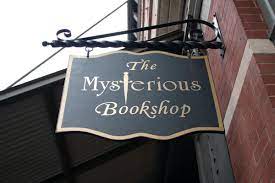


I did some purchasing here. First these tiny little ‘biblio-mysteries’ – small enough to fit in a jacket pocket. They are all short mysteries stories themed or set in bookstores, libraries, or just involving books. How could I resist – really?
And then, in a weak moment I spent a fair amount on Mr. Penzler’s own journal of his mystery book collection which he sold. But before he did he recorded the best of his collection.
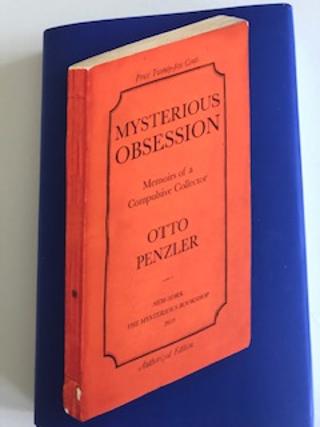
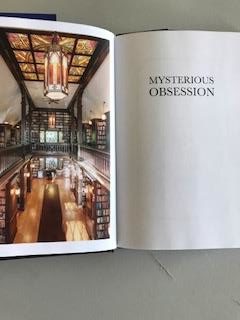
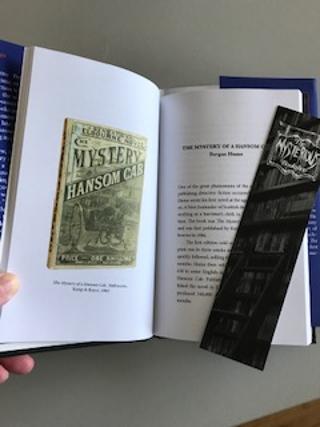
As you can see, there are color plates throughout and a treasured souvenir of our trip to New York City.
The city is starting to come back to life after the pandemic. Restaurants were open, cafes had customers. Not as crowded as in the past, but those who were on the streets seemed happy to be out and about. As a result, it was a kinder, gentler atmosphere. Masks were still being worn (including us) so we felt safe and comfortable, even on the subway.
Husband’s FitBit recorded that we walked 41 miles throughout the city, but it never felt like it – so much to see – every neighborhood is different and unique.
And the people watching — always the best in NYC.



